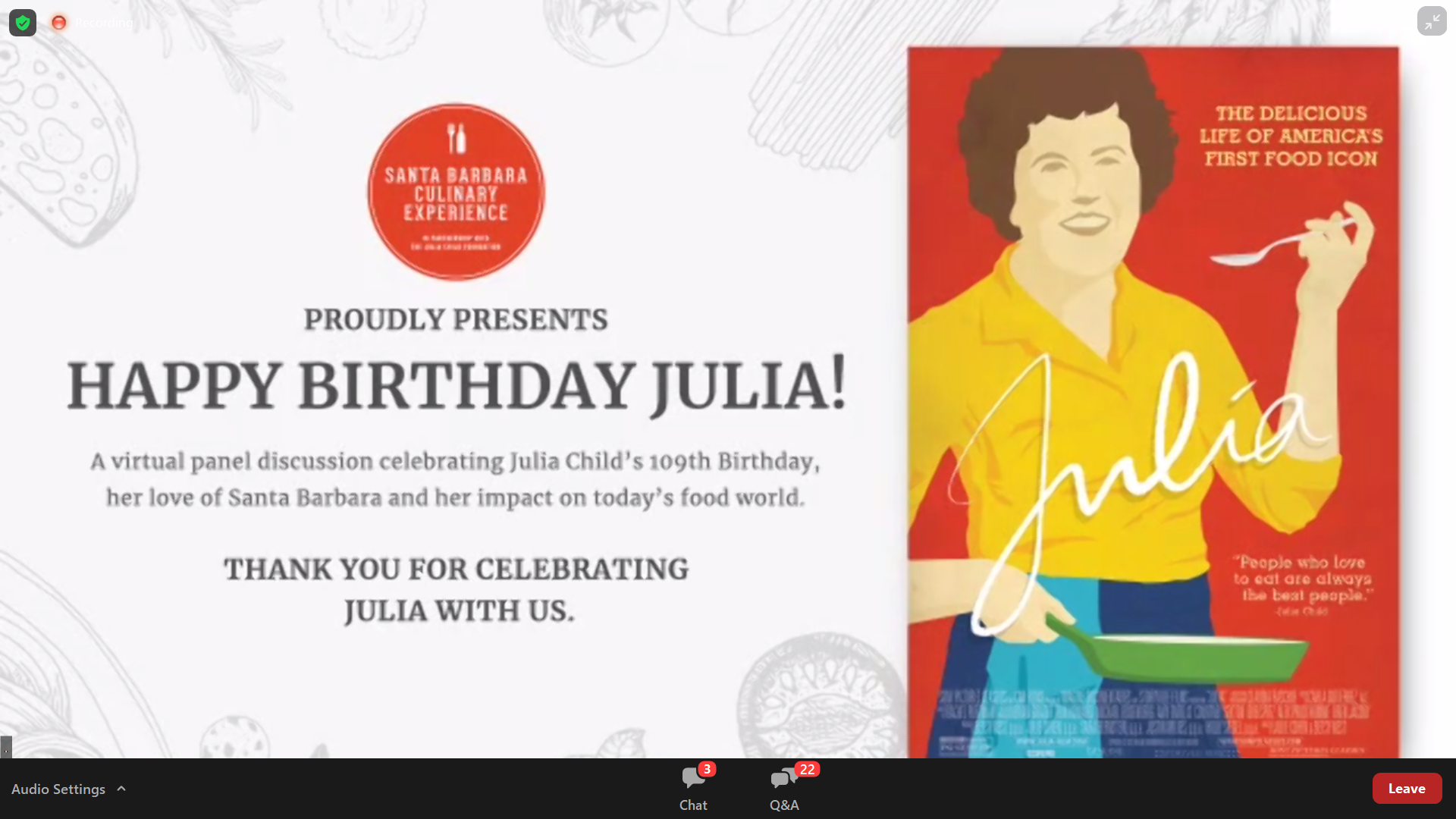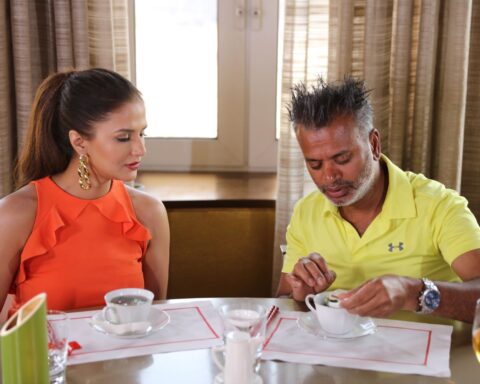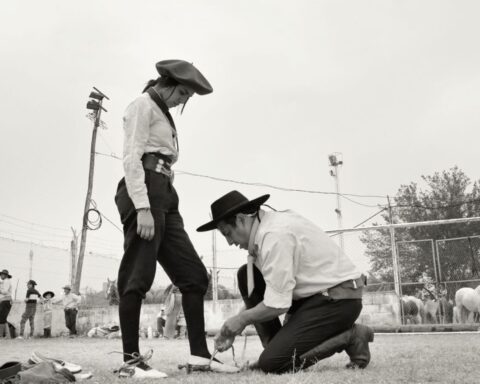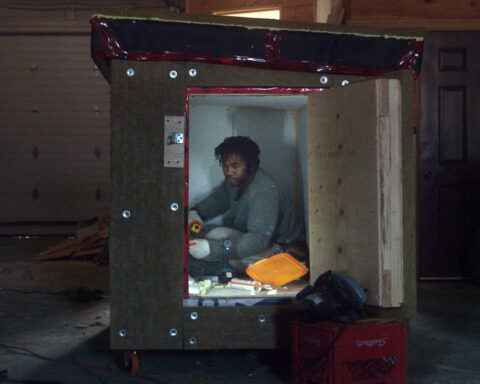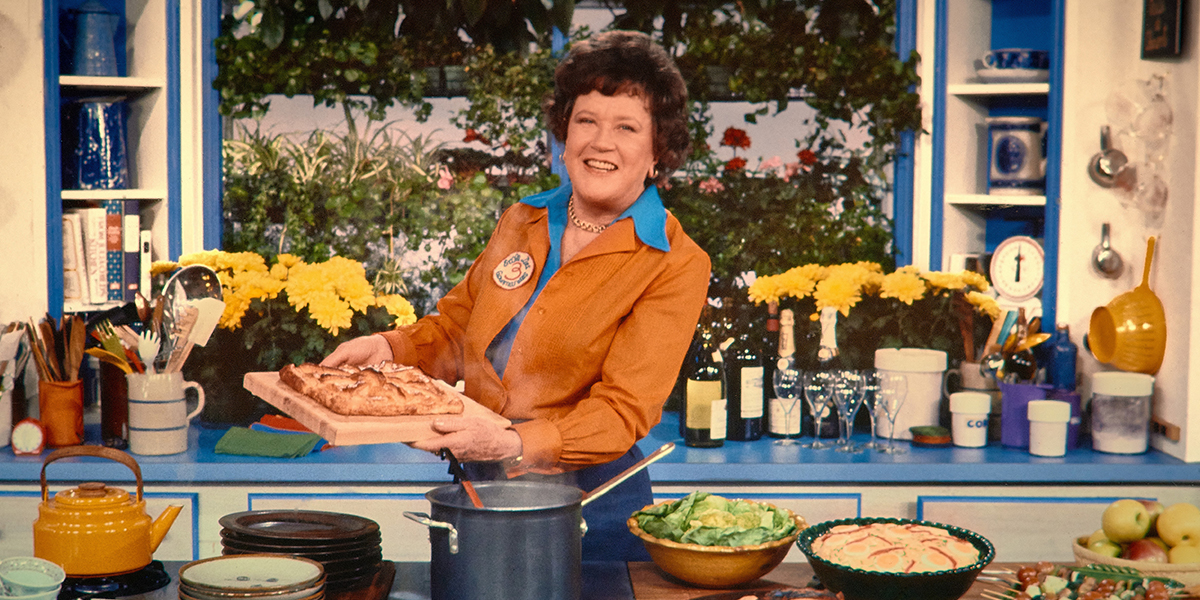“How can you be objective about Julia Child?” asked director Julie Cohen. “She’s a towering figure who changed the way Americans thought about food, television, and the role of women in our society.”
Cohen joined her Julia and RBG director Betsy West in a special virtual panel on August 15 hosted by the Santa Barbara Culinary Experience to celebrate Child’s 109th birthday. In a conversation moderated by Todd Schlukin, executive director of The Julia Child Foundation for Gastronomy and the Culinary Arts and host of the Inside Julia’s Kitchen podcast, the directors gave a sneak peek at their upcoming film Julia and discussed the impact of Child’s career. The film was recently announced as a selection for the Toronto International Film Festival ahead of its theatrical run this fall.
Also featuring Child’s grandnephew Alex Prud’homme, who co-authored her best-selling memoir My Life in France and serves as executive producer of the film, the lively conversation covered everything from food to feminism. It also offered an amuse-bouche in the form of an exclusive clip from Julia. The excerpt, which featured a mouth-watering poached pear and almond tart, highlighted Child’s education at Le Cordon Bleu in France and the lunchtime tradition in which she’d scurry home from class, whip up a decadent lunch for her husband Paul and, according to speculation, enjoy some daily nooky before heading back to school. (Which suggests that Le Cordon Bleu either had incredibly long lunch breaks, or that both Julia and Paul were incredibly efficient in their respective tasks.)
“Second to Julia, food is one of the stars of the film,” laughed Cohen. The director added that all the food seen in Julia is a creation from one of Child’s recipes, including her signature boeuf bourguignon and roast chicken. All the food in the film was prepared by Susan Spungen, who also styled the food for the drama Julie & Julia for which Meryl Streep’s performance as Child earned an Oscar nomination. The scenes in which Spungen prepares the food were shot in a soundstage in which the filmmakers recreated two sides of Child’s Cambridge kitchen in careful detail.
West added that the cooking scenes were filmed using macro shoots modeled upon food photography that allows one to savour the dishes’ details and textures. “We wanted to film food in a way it hadn’t been filmed before,” she explained.
The scene from Julia highlighted a collage that creates the recipe for Child’s story. Photographs and letters were layered atop the dramatic creation in Child’s kitchen just as carefully as the wine-poached pears were arranged atop the tart’s crust and frangipane. The love story between Paul and Julia is obviously a highlight of the film as the directors noted how food could be an expression of love with Cohen calling Paul and French food the two great loves of Child’s life. (Apparently, one of the great surprises of the research process was discovering Paul Child’s skill as a photographer.)
Prud’homme, joining the conversation from a family summer home that Julia and Paul helped build by hand, offered personal insight into the Childs’ relationship. Saying the Childs were like his “surrogate grandparents,” Prud’homme likened their relationship to Henry Higgins and Eliza Doolittle in Pygmalion and My Fair Lady with the dynamic of a sophisticated older man and an ingénue. “She ate it up,” remarked the author about his aunt. However, Prud’homme noted that Paul’s work brought the couple to France, but then the roles reversed when the Childs’ returned to America and Julia became a celebrity.
West added that Child differed from their previous subject Ruth Bader Ginsburg in that the late Justice of the Supreme Court “notoriously hated to cook.” However, she added that Child and RBG had more in common than one may suspect. “They were both women who found their passion and pursued it without taking no for an answer,” said West. She observed that the women both found celebrity later in life—Child was 49 when Mastering the Art of French Cooking was published—and were apart of great love stories.
Further comparisons between RBG and Child could be seen in Prud’homme’s observation of his aunt’s desire to learn more. “One of the defining characteristics of Julia was her inquisitiveness,” said Prud’homme, who said she discussed all the things she wanted to do, teach, and learn until the day she died.
The meat of the conversation came when Schlukin asked the panelists if Julia Child was a feminist. Cohen noted that the film is a “feminist love story” with Julia advancing her career while continuing to express her love through the creation of food and with Paul working tirelessly alongside her. Although the directors agreed that Child was reluctant to align herself directly with the women’s movement and feminism as it was defined at the time, Child was a supporter of gay rights and Planned Parenthood. West also said that Child was proponent of giving women professional opportunities in the kitchen and would note the absence of women in the restaurants she frequented.
“Her whole life story presented a fully realised, accomplished, and smart person apart from her husband,” observed Cohen. “Empowering women to create deliciousness…amen to that!”
Julia premieres at the 2021 Toronto International Film Festival.




